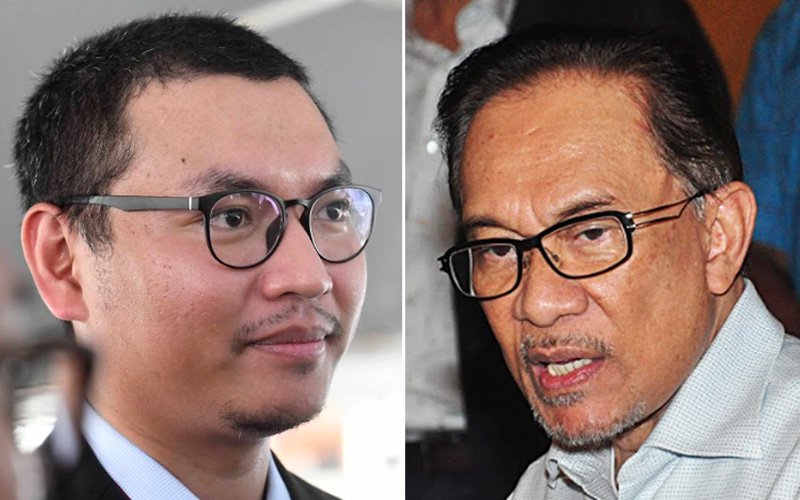Lawyers split over Saiful’s sodomy claim against Anwar

(FMT) – Lawyers are split on whether Saiful Bukhari Azlan, an independent candidate in the Port Dickson by-election, committed an offence by bringing up his sodomy accusation against his former boss, Anwar Ibrahim, who is also contesting the seat.
Saiful previously said he would not raise the issue during his campaign for the by-election. However, he told the audience during a ceramah on Sunday that he had sworn three times to defend his claim against Anwar, who is the PKR president-elect.
He later said he had no choice but to speak about the issue as he was replying to a question from a member of the audience.
Lawyer Akbardin Abdul Kader said Saiful had not made any fresh accusations against Anwar but was merely repeating his court testimony that the PKR leader had sodomised him.
“Furthermore, the Federal Court upheld Anwar’s conviction. So even though Anwar has been pardoned, that does not exonerate him of his guilt.
“That is to say, Anwar’s conviction remains. Saiful committed no offence by repeating it,” he told FMT.
Akbardin added that a pardon was defined as forgiveness, which comes under mercy.
“Mercy kicks in when all legal avenues are exhausted. It is a fallacy to say a pardon means the offender never committed the offence.”
In March 2014, the Court of Appeal overturned Anwar’s acquittal for sodomising Saiful, his former aide.
The decision was reaffirmed on Feb 10, 2015 by the Federal Court which sentenced Anwar to five years in jail.
On May 16, Anwar was granted a royal pardon by the Yang di-Pertuan Agong.
Lawyer Nizam Bashir disagreed with Akbardin, saying Anwar’s pardon blotted out his conviction. He told FMT that the PKR leader could no longer be accused by Saiful of the crime.
“If one takes one’s cue from decisions across the Causeway, a pardon blots out a conviction and that is all that matters.
“Once a pardon is received, the person in question cannot be accused of that crime.”
In other jurisdictions, he said, a distinction was drawn between a pardon granted for innocence and a pardon granted for other reasons.
The former category would blot out both the punishment and the guilt, he said.
“Such a pardon is effectively an acquittal and has all the effects of an acquittal.”
However, a pardon granted for other reasons merely blotted out the punishment, not the guilt, he said. This meant that there was no acquittal and that the determination of the court would stand although the convict would be relieved of the legal consequences.
“This includes freedom from any further incarceration, other legal punishments for the crime, or any other effects such as the loss of civil rights,” he said.
On whether such a distinction applied in Malaysia, Nizam noted the “seeming difficulty” in answering this, which he said might be compounded by the variation between Article 42 of the constitution which uses the phrase “pardon”, and item 6 (1)(e) of the Eighth Schedule of the Federal Constitution which uses the phrase “free pardon”.

